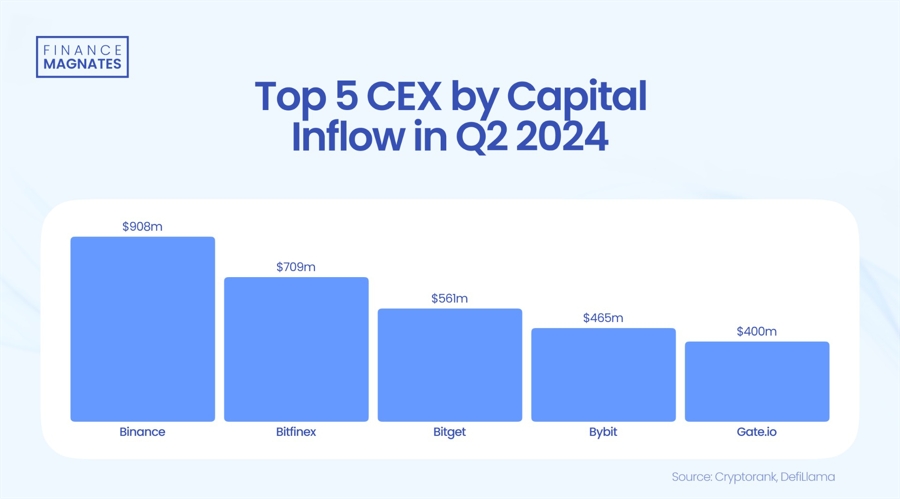News
Is cryptocurrency like stocks and bonds? The courts are getting closer to an answer.

For more than a decade, cryptocurrency industry pioneers have envisioned digital currencies as an alternative branch of finance, a renegade sector that would operate beyond the reach of big banks and government regulators.
But as digital currencies like Bitcoin and Ether became increasingly widespread, the cryptocurrency industry ran afoul of a 1946 Supreme Court decision that created what’s known as Howey’s testa legal analysis that determines when a financial product becomes subject to the same strict rules as stocks and bonds.
In recent years, regulators have seized on this legal precedent to argue that cryptocurrencies are just another stock, like Apple or General Motors stock. The cryptocurrency industry fought back, leaving it in a legal gray area with an uncertain future in the United States.
Now the long-running dispute is moving closer to a resolution, as federal judges begin considering a series of lawsuits from the nation’s top securities regulator against some of the largest cryptocurrency companies. This month, judges held hearings in two of the most high-profile cases that could decide whether the multibillion-dollar cryptocurrency industry can continue to grow in the United States.
The legal battles are “an existential issue for cryptocurrencies,” said Hilary Allen, an American University professor who specializes in financial regulation.
Court battles have intensified over the past 18 months, as has the Securities and Exchange Commission has taken legal action claiming that crypto companies were operating as unregulated securities businesses. In response, the industry argued that laws regulating Wall Street trading should not apply to digital currencies. Both sides achieved initial victories in court that left the issue unresolved.
But this month, federal judges held hearings in two cases that legal experts expect will be more decisive: the SEC’s lawsuits against cryptocurrency exchanges Coinbase and Binance, which explore the central issues in the broader legal battle. Preliminary rulings on those cases are expected in the coming weeks, setting the stage for litigation that could eventually reach the Supreme Court.
“We have built our legal strategy around” a possible Supreme Court showdown, said Paul Grewal, Coinbase’s chief legal officer. “These are issues that have potential implications for large sectors of the economy.”
How the courts rule could determine whether the cryptocurrency industry can dig deeper into the American financial system. If the SEC prevails, cryptocurrency advocates say, it will stifle the growth of a new and dynamic technology, pushing start-ups to move offshore. The government has countered that robust oversight is needed to end rampant fraud that costs investors billions of dollars the cryptocurrency market imploded in 2022.
“The history of cryptocurrency markets demonstrates that investors are being put at risk and harmed by these platforms’ total disregard for regulatory requirements,” said SEC spokesperson Stephanie Allen.
Crypto’s origins date back to 2008, when a developer known by the pseudonym Satoshi Nakamato created the software behind Bitcoin. Early proponents envisioned cryptocurrencies as a decentralized alternative to traditional finance, a communal project run by a large network of people spread across the globe.
But as the industry matured, companies similar to traditional financial firms began developing cryptocurrencies and aggressively marketing them. Enthusiasts purchased the digital coins in the hope that they would increase in value. The government saw the emerging sector as an unregulated version of Wall Street, full of fraud and manipulation. According to Cornerstone Research, a consulting firm, the SEC filed 46 cryptocurrency-related lawsuits last year.
The SEC’s blueprint for cryptocurrencies is driven by a 1946 Supreme Court case involving investments in Florida orange groves. The case led to the creation of the Howey Test, a legal standard for determining what makes something a security if it is not a stock or bond.
In this framework, a financial product becomes a security when it offers the possibility of investing in a “joint enterprise” with the expectation of profiting from the efforts of other people. Examples of securities subjected to the Howey test include some insurance products and even sales contracts chinchilla.
Classification as a security comes with a wide range of legal requirements: companies offering securities must provide detailed information and comply with complex investor protection procedures which can be expensive to carry out.
In public statements, SEC Chairman Gary Gensler has argued that most digital currencies qualify as securities under the Howey test because people invest in cryptocurrencies hoping that the companies issuing the currencies will drive up prices. Only Bitcoin, he said, is beyond the reach of the SEC, as no central group or individual oversees it.
Under the regulatory authority of the SEC, Gensler was given the opportunity to develop new regulations for the cryptocurrency industry. But he instead argued that the industry should be regulated by existing laws and court rulings established to protect investors from fraud.
The cryptocurrency industry has called this approach overly broad, countering that a formal contract between the seller of a digital currency and an investor is required for the agreement to constitute a securities transaction.
“Gensler’s approach was to put a square peg in a round hole,” said Teresa Goody Guillén, a partner at BakerHostetler and former SEC counsel. “There needs to be a regulatory regime in place for these new assets beyond just saying they are all securities.”
Gensler’s strategy faced an initial test in the SEC’s lawsuit against digital currency issuer Ripple. In July, a New York federal judge, Analisa Torres, governed that Ripple’s cryptocurrency did not qualify as a security, at least when it was bought and sold on public exchanges by amateur investors. Judge Torres found that these investors did not expect to profit from Ripple’s stock as a company.
The ruling was celebrated in the crypto world. But the enthusiasm was tempered a few weeks later, when a judge in another case endorsed the SEC’s view that a different set of cryptocurrencies qualified as securities and rejected much of Judge Torres’ reasoning.
This split has raised the stakes for judges overseeing SEC lawsuits against Coinbase and Binance, which serve as marketplaces for dozens of digital currencies. In these cases, the SEC argued that at least 20 cryptocurrencies qualified as securities, giving judges the ability to issue wide-ranging rulings that could apply across the digital asset universe.
A hearing on the Coinbase case in Manhattan federal court last week lasted five hours, with more than 500 people tuning in via phone; About 250 people tuned in to Binance’s hearing in Washington on Monday. Both hearings revolved around the applicability of the Howey Test to digital currencies.
Lawyers for Coinbase argued that the SEC is seeking to extend the intent of the Howey Test to cover cryptocurrency investments. Without a clear contractual agreement between the buyer of a digital coin and its issuer, lawyers said, a cryptocurrency is no different from any other “collectible” that could increase in value over time, such as baseball cards or Beanie Babies dolls.
During the hearing, Judge Katherine Polk Failla appeared to support some of Coinbase’s concerns about overruling the SEC, saying the commission may “be too broad in scope.”
“We’re all afraid that you have so little limit on your standards” that some lawyers will argue that Beanie Babies are unregistered securities, he told a lawyer on the commission.
In the Binance case, Judge Amy Berman Jackson in Washington seemed more skeptical about comparing digital coins to collectible toys. But she expressed concern about the SEC’s strategy and urged government lawyers to explain the limitations of their argument.
Those hearings came just days after a major victory for the cryptocurrency industry the SEC has approved a new Bitcoin investment product for trading on Wall Street. Gensler fought to block its introduction until a court ruled against the SEC in August, effectively forcing the agency’s hand.
“It was an amazing thing that gave people reason for hope,” said Coinbase’s Grewal. “There is real optimism in the industry now.”
News
Block Investors Need More to Assess Crypto Unit’s Earnings Potential, Analysts Say — TradingView News

Block, a payments technology company led by Jack Dorsey square could become a formidable player in the cryptocurrency mining industry, but Wall Street will need details on profit margins to gauge the positive impact of the business on earnings, analysts said.
Block signed its first large-scale cryptocurrency mining hardware pact on Wednesday, agreeing to supply its chips to bitcoin miner Core Scientific CORZbut no financial details were disclosed.
JP Morgan estimates the deal could net Block between $225 million and $300 million, but said more information will be needed to assess the hardware business’s long-term earnings potential.
“We still have a lot to learn in terms of the margins of this business, so we are hesitant to underwrite this transaction until we know more about the cadence and economics,” J.P. Morgan said.
The deal marks a major step for the payments company, which started out as “Square” in 2009 before rebranding in 2021 in a nod to its focus on crypto and blockchain technologies.
Dorsey, who co-founded and ran Twitter (now known as “X”), has long been bullish on Bitcoin. Block began investing 10% of its monthly gross profit from Bitcoin products into Bitcoin in April.
In the first quarter, nearly 9% of the company’s cash, cash equivalents, and marketable securities consisted of bitcoin.
“This development (the deal with Core Scientific) is further evidence of Block’s role as an emerging leader in the crypto hardware ecosystem,” Macquarie analysts Paul Golding and Emma Liang wrote in a note.
Analysts say similar deals to follow could further validate Block’s reputation in the industry.
But J.P. Morgan said the stock’s performance will be determined by Block’s other segments, such as Square and Cash App.
Block shares have lost nearly 17% this year.
News
This Thursday’s US Consumer Price Index could be a game-changer for cryptocurrencies!

3:30 PM ▪ 4 minute read ▪ by Luc Jose A.
This Thursday, attention will be focused on the United States with the anticipated release of the Consumer Price Index (CPI). This economic indicator could trigger significant movements in the markets, especially for the U.S. dollar and cryptocurrencies. While investors remain vigilant, speculation is rife about the potential impact of these key figures.
The Consumer Price Index: The Cornerstone of the American Economy
The Consumer Price Index (CPI) is a key measure of inflation which reflects changes in the price of goods and services purchased by American households. This index is calculated monthly by the Bureau of Labor Statistics (BLS) and serves as a barometer for the cost of living. The consumer price index covers a wide range of products, including food, clothing, housing, health care, and entertainment. Economists and policy makers closely monitor this data to anticipate economic trends and adjust monetary policies accordingly.
The June CPI data is due to be released this Thursday at 2:30 p.m., and is highly anticipated by investors. The current consensus is for headline annual inflation to decline to 3.1%, from 3.3% the previous month, while core inflation is expected to remain stable at 3.4%.
THE BIGGEST EVENT THIS WEEK 🚨
The U.S. Consumer Price Index is expected to
PUBLICATION TODAY AT 8:30 AM ET.EXPECTATIONS ARE 3.1% WHILE
LAST MONTH THE CONSUMER PRICE INDEX (CPI) WAS 3.3%HERE ARE SOME SCENARIOS 👇
1) CPI above 3.1%
THIS WILL BE A DAMAGE TO THE MARKET
GIVEN THAT THE LAST TIME THE CPI DATA… photo.twitter.com/yudjPLPl8g— Ash Crypto (@Ashcryptoreal) July 11, 2024
Consumer Price Index Release: What Does It Mean for the Dollar and Bitcoin?
Inflation as measured by the consumer price index is a key determinant of the value of the US dollar. If the consumer price index declines more than expected, it could reinforce expectations of a rate cut by the Federal Reserve in September, thus weakening the dollar. A weaker dollar could benefit GBP/USD, which recently broke a major resistance level, and Bitcoin, which could see its price rise due to increased demand from institutional investors.
Current forecasts suggest that headline inflation will decline to 3.1%, with core inflation holding steady at 3.4%. However, a surprise increase in the consumer price index could upset these expectations. Fed Governor Lisa Cook has mentioned the possibility of a soft landing for the economy, with inflation falling without a significant increase in unemployment, which could lead the Fed to consider rate cuts. This outlook is particularly favorable for stock markets and cryptocurrencies, including Bitcoin, which could benefit from a more accommodative monetary policy.
According to experts at 10x Research, especially their CEO Markus Thielen, Bitcoin could see a significant increase if the CPI data confirms a decline in inflation. Thielen indicated that Bitcoin could reach almost $60,000, a prediction that has already been reflected with a rise to $59,350 before the data was released.
Therefore, Thursday’s CPI data could determine the future direction of financial and cryptocurrency markets. High inflation could strengthen the US Dollarwhile a drop in inflation could pave the way for rate cuts by the Fed, thus giving a boost to Bitcoin and other digital assets.
Enhance your Cointribune experience with our Read to Earn program! Earn points for every article you read and access exclusive rewards. Sign up now and start earning rewards.
Click here to join “Read to Earn” and turn your passion for cryptocurrencies into rewards!
Luke Jose A.
A graduate of Sciences Po Toulouse and holder of a blockchain consultant certification issued by Alyra, I joined the Cointribune adventure in 2019. Convinced of the potential of blockchain to transform many sectors of the economy, I am committed to raising awareness and informing the general public about this ever-evolving ecosystem. My goal is to enable everyone to better understand blockchain and seize the opportunities it offers. Every day, I strive to provide an objective analysis of the news, decipher market trends, convey the latest technological innovations and put into perspective the economic and social issues of this ongoing revolution.
DISCLAIMER
The views, thoughts and opinions expressed in this article are solely those of the author and should not be construed as investment advice. Do your own research before making any investment decisions.
News
Crowd Expects Bitcoin Bounce Suggests Further Losses, As RCO Finance Resists Crash

Bitcoin is seeing a rebound after its recent price crash to $53,000. Other altcoins are subsequently recovering, with many cryptocurrency investors increasingly making new entries. However, Santiment warned against this hopium, suggesting that Bitcoin could extend its price losses.
As the broader market anticipates Bitcoin’s next price action, RCO Finance (RCOF) demonstrates resilience, attracting thousands of people in influxes. Read on for more details!
RCO Finance challenges the market crisis
RCO Finance (RCOF) is approaching $1 million in funding raised, amid growing interest from institutional traders seeking stability from Bitcoin’s wild price swings. While much of the broader market has seen significant price losses, RCO Finance has remained resilient, experiencing a surge in its pre-sale orders.
As a result, the project seems oblivious to the current market conditions, leading top market experts to take a deep dive into its ecosystem. They identified why RCO Finance was able to withstand the bearish pressure and its potential to hold up even stronger during the impending broader market crash.
The main reason was related to the innovative use of RCO Finance AI Trading Tools as a Robo Advisor. This tool has been integrated into RCO Finance’s cryptocurrency trading platform, offering full automation and highly accurate market forecasts to help investors make informed decisions.
Read on to learn more about this tool and other exciting features of RCO Finance!
Bitcoin Bounces Amid Impending Crash
Bitcoin is bouncing back, rallying 8% after plunging to its lowest point since February on July 5. While this rebound has triggered a bullish wave in the broader market, many cryptocurrency analysts predict it could be short-lived as Bitcoin is poised for an imminent crash toward the $50,000 zone.
On a Post X (formerly Twitter)Santiment revealed that while the crowd is anticipating a Bitcoin rally, this potential crash could trigger FUD and panic, causing average traders to wither and give up on Bitcoin. The platform noted that Bitcoin rally has historically occurred after these weak hands sold their holdings.
In particular, these cryptocurrency analysts speculate that the previous and upcoming Bitcoin crash is largely the result of bearish market psychology, as opposed to large BTC sell-offs by the German government and Mt. Gox. In particular, Ki Young Ju, founder and CEO of CryptoQuant, noticed that “the sales were rather negligible, given the overall liquidity of Bitcoin.”
Enjoy seamless investing on RCO Finance
RCO Finance is making investing easier and easier, democratizing access to high-level tools and cryptocurrency earnings that were once reserved for professional and institutional investors. It has also prioritized accessibility, allowing investors of all levels to easily navigate its features through its intuitive interface.
Additionally, they can also maintain anonymity and privacy as the platform has no KYC requirements. To build trust, the platform has instead emphasized regular smart contract audits by respected security firm SolidProof.
Performance data shows massive adoption, indicating that it is doing its job effectively. Investors can also capitalize on RCO Finance’s fast transaction speeds and incredibly low transaction fees, with leverage options up to 1000x to further optimize their portfolios and maximize returns.
Leverage RCO Finance’s pre-sale earnings
An in-depth analysis of the RCO Finance ecosystem revealed that it has strong potential to rival and surpass major cryptocurrencies in the cryptocurrency industry. With a very limited total token supply and excellent tokenomics, RCO Finance is poised to reach its target of $1 billion in market cap upon its official launch.
RCO Finance has adopted a deflationary model, strategic burn mechanisms, and a vesting schedule. However, the project encourages long-term holding by focusing on sustained growth through incredibly high staking rewards.
RCOF tokens are currently available at an altcoin price of $0.01275 in progress Pre-sale Phase 1. This is likely the lowest price these coins will ever trade at, as they are expected to increase exponentially with each new presale phase.
With RCOF expected to be $0.4 at launch, investors jumping in now can expect a Return 30x on their investment!
For more information on RCO Finance (RCOF) presale:
Join the RCO Financial Community
Disclaimer: The statements, views and opinions expressed in this article are solely those of the content provider and do not necessarily represent those of Crypto Reporter. Crypto Reporter is not responsible for the reliability, quality and accuracy of any material in this article. This article is provided for educational purposes only. Crypto Reporter is not responsible or liable, directly or indirectly, for any damage or loss caused or alleged to be caused by or in connection with the use of or reliance on any content, goods or services mentioned in this article. Do your own research and invest at your own risk.
News
Bitget Ranks Third Among Cryptocurrency Exchanges by Capital Inflows in Q2

Although Bitget is not the largest cryptocurrency exchange in terms of total volumes, it closed a favorable quarter. From April to June, the platform ranked third in net capital inflows and showed the strongest growth in market share compared to its competitors.
In the second quarter, investors moved $700 million into Bitget, and activity on the platform increased by nearly 50%.
The exchange has seen a surge in user funds, with Bitcoin (BTC), Tether (USDT), and Ethereum (ETH) rising 73%, 80%, and 153%, respectively, in the first six months of the year. This growth coincided with adding 2.9 million new users to the platform.
This has positioned Bitget among the top exchanges with the highest positive net inflows in the last quarter. Only Binance, which remains the market leader, and Bitfinex have performed better in this category.
According to CCData’s latest H2 Outlook Report, the exchange also recorded the highest market share growth among centralized exchanges, increasing 38.4% from H2 2023 to H1 2024.
Bitget’s spot trading volume has also seen a visible increase, going from $28 billion in Q1 to $32 billion in Q2, marking an increase of over 10%. The platform’s monthly visitors have reached 10 million. Although its volumes are increasing, Bitget still does not rank among the top 10 cryptocurrency exchanges in terms of spot trading.
The changes taking place in the centralized cryptocurrency exchange market show that competition is becoming more and more intenseAn example of this is the recent surge in popularity of Bybit, which has become the second largest exchange in terms of spot trading volumes.
Sports Sponsorships and New Products
Gracy Chen, Source: LinkedIn
Gracy Chen, CEO of Bitget, commented on the quarterly performance, saying, “Q2 2024 was a pivotal period for Bitget. Our collaboration with Turkish athletes, along with significant growth in users and website traffic, is part of our global expansion.”
In an effort to expand its global presence, Bitget has partnered with three Turkish national athletes as part of its #MakeItCount campaign, starring Lionel Messi. The deal with the famous footballer It was signed in Februaryto build brand presence in Latin America.
The exchange also launched a $20 million TON Ecosystem Fund in partnership with Foresight Ventures to support early-stage projects on The Open Network.
The exchange introduced two new initial token listing products, PoolX and Pre-market, which collectively launched over 100 projects. Additionally, Bitget’s native token, BGB, was recognized as the best-performing centralized exchange token in June and was ranked among the top 10 cryptocurrencies by Forbes.
In its latest move, the cryptocurrency exchange aimed to become a regulated player in IndiaThe announcement comes as the world’s most populous democracy grapples with the complexities of integrating cryptocurrencies into its financial ecosystem.
Even recently,
Bitget Wallet Announced a joint investment with cryptocurrency investment firm Foresight X in Tomarket, a decentralized trading platform. This initiative targets emerging asset classes and aims to expand the portfolio’s services beyond traditional decentralized exchanges (DEXs).
Although Bitget is not the largest cryptocurrency exchange in terms of total volumes, it closed a favorable quarter. From April to June, the platform ranked third in net capital inflows and showed the strongest growth in market share compared to its competitors.
In the second quarter, investors moved $700 million into Bitget, and activity on the platform increased by nearly 50%.
The exchange has seen a surge in user funds, with Bitcoin (BTC), Tether (USDT), and Ethereum (ETH) rising 73%, 80%, and 153%, respectively, in the first six months of the year. This growth coincided with adding 2.9 million new users to the platform.
This has positioned Bitget among the top exchanges with the highest positive net inflows in the last quarter. Only Binance, which remains the market leader, and Bitfinex have performed better in this category.
According to CCData’s latest H2 Outlook Report, the exchange also recorded the highest market share growth among centralized exchanges, increasing 38.4% from H2 2023 to H1 2024.
Bitget’s spot trading volume has also seen a visible increase, going from $28 billion in Q1 to $32 billion in Q2, marking an increase of over 10%. The platform’s monthly visitors have reached 10 million. Although its volumes are increasing, Bitget still does not rank among the top 10 cryptocurrency exchanges in terms of spot trading.
The changes taking place in the centralized cryptocurrency exchange market show that competition is becoming increasingly intenseAn example of this is the recent surge in popularity of Bybit, which has become the second largest exchange in terms of spot trading volumes.
Sports Sponsorships and New Products
Gracy Chen, Source: LinkedIn
Gracy Chen, CEO of Bitget, commented on the quarterly performance, saying, “Q2 2024 was a pivotal period for Bitget. Our collaboration with Turkish athletes, along with significant growth in users and website traffic, is part of our global expansion.”
In an effort to expand its global presence, Bitget has partnered with three Turkish national athletes as part of its #MakeItCount campaign, starring Lionel Messi. The deal with the famous footballer It was signed in Februaryto build brand presence in Latin America.
The exchange also launched a $20 million TON Ecosystem Fund in partnership with Foresight Ventures to support early-stage projects on The Open Network.
The exchange introduced two new initial token listing products, PoolX and Pre-market, which collectively launched over 100 projects. Additionally, Bitget’s native token, BGB, was recognized as the best-performing centralized exchange token in June and was ranked among the top 10 cryptocurrencies by Forbes.
In its latest move, the cryptocurrency exchange aimed to become a regulated player in IndiaThe announcement comes as the world’s most populous democracy grapples with the complexities of integrating cryptocurrencies into its financial ecosystem.
Even recently,
Bitget Wallet Announced a joint investment with cryptocurrency investment firm Foresight X in Tomarket, a decentralized trading platform. This initiative targets emerging asset classes and aims to expand the portfolio’s services beyond traditional decentralized exchanges (DEXs).
-

 DeFi12 months ago
DeFi12 months agoDeFi Technologies Appoints Andrew Forson to Board of Directors
-

 Fintech12 months ago
Fintech12 months agoUS Agencies Request Information on Bank-Fintech Dealings
-

 News1 year ago
News1 year agoBlock Investors Need More to Assess Crypto Unit’s Earnings Potential, Analysts Say — TradingView News
-

 DeFi12 months ago
DeFi12 months agoSwitchboard Revolutionizes DeFi with New Oracle Aggregator
-

 DeFi12 months ago
DeFi12 months agoIs Zypto Wallet a Reliable Choice for DeFi Users?
-

 News1 year ago
News1 year agoBitcoin and Technology Correlation Collapses Due to Excess Supply
-

 Fintech12 months ago
Fintech12 months agoWhat changes in financial regulation have impacted the development of financial technology?
-

 Fintech12 months ago
Fintech12 months agoScottish financial technology firm Aveni secures £11m to expand AI offering
-

 Fintech12 months ago
Fintech12 months agoScottish financial technology firm Aveni raises £11m to develop custom AI model for financial services
-

 News1 year ago
News1 year agoValueZone launches new tools to maximize earnings during the ongoing crypto summer
-

 Videos6 months ago
Videos6 months ago“Artificial intelligence is bringing us to a future that we may not survive” – Sco to Whitney Webb’s Waorting!
-

 DeFi1 year ago
DeFi1 year agoTON Network Surpasses $200M TVL, Boosted by Open League and DeFi Growth ⋆ ZyCrypto






